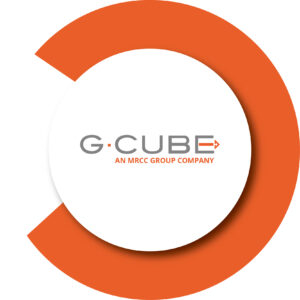How Bite-Size Training Can Fix The Broken Workshop
The way we structure workshops in business is outdated. Training day courses tend to take the form of lectures, complete with accompanying PowerPoint slides. These present 'key' bullet points of jargon, which employees strain to interpret. Unlike lectures, however, this training is not supported by a surrounding routine of similar learning. Its one-off nature means that rates of retention are even lower (see this piece on the Ebbinghaus Curve, which shows how repeated exposure over time improves retention).
The Problem With The Workshop Approach
These training structures are monolithic, an overhang from the origins of large-scale corporate training. Today's workforce has adapted; individuals today are more used to highly mobile and flexible modes of communication. Why, then, hasn't business training adapted to suit the new needs of our generation?
It's very easy to pronounce workshop training a success, as it ticks lots of visible boxes. Leaders can use superficial but quickly quantifiable measurements like how many faces turn up on the day to rate their success. We prioritize, and glorify, the event itself. It’s harder, however, to measure whether these courses actually have an effect on behavior over time. The downside to glorifying the event is that we lose sight of what happens afterwards.
Bite-Size Training And Memory Retention
Again, the Ebbinghaus Curve shows us that small refreshers at appropriate intervals can dramatically help to increase memory retention, a truth which is at the basis of the bite-size training approach. But aside from simply remembering facts, bite-size learning can be far more effective in changing behavioral habits.
From here, our whole understanding of training can be reimagined. We can move from taking part in successions of one-off events to a truer conception of employee development, one which takes place gradually and far less obtrusively.
This can be highly useful if, for example, a workplace is implementing a new policy — perhaps a new management strategy like KPIs or OKRs. Integrating a whole new ethos little and often can build up consistency over time, rather than allowing an initial spark to soon die down, or risking a monolithic and un-nuanced approach. Furthermore, newly flexible modes of communication are ideally suited for this new approach to subtle integration. Not only are techniques like push notifications and brief alerts unobtrusive, they are also far simpler to implement, and highly cost-effective. And it’s not just a business win in terms of efficiency and development, it’s also a much pleasanter prospect for workshop participants. A new kind of bite-size training no longer seems onerous and passive, but instead empowers the learner. It offers an assured, active process which is sustained over time.
It’s also far easier to assimilate into a standard business day. Getting rid of workshops isn’t just about removing the obstacles of blocked-off time, business space, and resources. What bite-size training offers in its place is any-time opportunity. Learners could collectively choose to take five minutes each day after staff meetings to check alerts, or could train during personal commuting time.
With bite-size training, an engaging, clearly explained, and individually undertaken training course speaks for itself as a more flexible, efficient workshop alternative. But it can also be thought of as just the beginning. Learning and practice can be integrated either with refresher courses to increase retention, or enhancement courses to build on an employee’s basic understanding of a topic.
Following a traditional training approach, more proactive employees can take changes on board at a drastically different rate to those least engaged. With a gradual approach of refreshing and building on learning in manageable chunks, your team grows stronger over time at the same rate. They require less immediate commitment in terms of real time (so can be tailored to schedule), yet yield far more enduring results.
Learning at work can now be re-imagined not just as a series of regularly positioned, one-off events throughout the year, but as a sustainable and incremental lifestyle change. Learning is embedded easily over time in digestible amounts, rather than crammed ineffectively into the traditional workshop. Beyond this, your initial course, supplementary courses or refresher quizzes can be created on a bespoke basis, in accordance both with theories of memory retention and with the needs of the business and employee. The traditional workshop offered little room for adjustment — with bite-size e-learning, the style, form, and length is flexible, opening up an entirely new set of possibilities for learning in the workplace.









